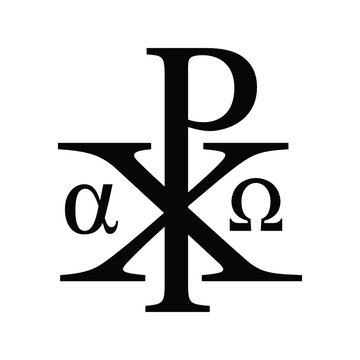- Today
- Total
| 일 | 월 | 화 | 수 | 목 | 금 | 토 |
|---|---|---|---|---|---|---|
| 1 | 2 | 3 | ||||
| 4 | 5 | 6 | 7 | 8 | 9 | 10 |
| 11 | 12 | 13 | 14 | 15 | 16 | 17 |
| 18 | 19 | 20 | 21 | 22 | 23 | 24 |
| 25 | 26 | 27 | 28 | 29 | 30 | 31 |
- Aurelius Augustinus
- Reformed Dogmatics
- dr. lane g. tipton
- 캐나다개혁교회
- 게할더스 보스
- 코넬리우스 반틸
- St. Augustine
- 约翰·加尔文
- B. B. Warfield
- 삼위일체론
- 성 아우구스티누스
- St. Augustinus
- Christian Nationalism
- Herman Bavinck
- J. Gresham Machen
- joseph alleine
- Dr. Stephen Tong
- John Calvin
- Geerhardus Vos
- Calvinism
- Reformed Forum
- systematic theology
- Augustine of Hippo
- Dr. R. Scott Clark
- predestination and free will
- Textual Criticism
- CanRC
- Institutes of the Christian Religion
- Reformed Theology
- 존 칼빈
Reformed Theology and Faith
Predestination and Justification: Two Theological Loci (Vermigli) 본문
Predestination and Justification: Two Theological Loci (Vermigli)
Bavinck Byeon 2025. 5. 10. 17:39
Predestination and Justification: Two Theological Loci
Author: Peter Martyr Vermigli
HOW DOES A GRACIOUS GOD SAVE STUBBORN SINNERS?
We cannot answer this question without delving into two of the most challenging and hard-fought doctrines in Christian theology: predestination and justification. Both doctrines played a crucial role in the Protestant Reformation, provoking conflicts not merely between the Reformers and Rome but also within the ranks of each. As a deeply Augustinian theologian, trained in one of the leading Catholic universities before converting to Protestant teaching, few men in the sixteenth century were so well-equipped to address these difficult subjects as Peter Martyr Vermigli.
His treatments of these great doctrines, developed as part of a series of lectures on the Book of Romans as Regius Professor of Theology at Oxford from 1550 to 1552, became classic statements of early Reformed theology, exerting great influence on the development of the Reformed tradition in England and throughout Europe. In them, he blends his knowledge of the Augustinian tradition and the doctrinal precision of medieval scholastic theology with the intense study of the Scriptures characteristic of Reformation humanism. Convinced that the work of salvation is wholly the work of a sovereign, irresistible, and gracious God, Vermigli defends the implications of this conviction against both ancient heresies and recent Catholic opposition. Vermigli's work has long been admired for both its erudition and precision, both of which are on display here in his discussion of these sometimes difficult and obscure doctrines.
Predestination and Justification - Reformation Heritage Books
https://heritagebooks.org/products/predestination-and-justification-two-theological-loci-vermigli.html
Predestination and Justification: Two Theological Loci (Vermigli)
Puritan and Reformed books at discounted prices.
heritagebooks.org
Peter Martyr Vermigli (born September 8, 1500, Florence [Italy]—died November 12, 1562, Zürich, Switzerland) was a leading Italian religious reformer whose chief concern was eucharistic doctrine.
The son of a prosperous shoemaker, Vermigli had by 1518 entered the Lateran Congregation of the Augustinian Canons Regular at Fiesole. After eight years of study at Padua, he served variously as preacher, vicar, and abbot, finally becoming abbot at St. Peter ad Aram, a city monastery in Naples, in 1537. There he joined the select group around Juan de Valdés and read the pseudonymous works of the reformers. Vermigli became suspect, and the Theatines procured his suspension from preaching, but sympathetic cardinals at Rome had the ban lifted. In 1541 he became prior of San Frediano at Lucca, where he gathered a teaching staff and introduced both monastery and congregation to Reformed doctrine and worship. Summoned to appear before his order at Genoa, he fled in August 1542 to Zürich. Martin Bucer then called him to Strasbourg (now in France), where he was professor of theology (1542–47, 1553–56).
In 1547 Vermigli accepted Archbishop Thomas Cranmer’s invitation to England and became Regius Professor of Divinity at the University of Oxford. The major event of his stay was a disputation (1549) on the Eucharist, at which three matters of belief were debated: (1) transubstantiation, (2) carnal or corporeal presence, and (3) whether “the body and blood of Christ is sacramentally joined to the bread and the wine.” His influence on the 1552 Book of Common Prayer and the Forty-two Articles written by Cranmer in 1553 is problematic. His eucharistic doctrine, in the Oxford Treatise and Disputation on the Eucharist and in Defensio adversum Gardinerum (published in 1559), was close to that of John Calvin, Bucer, and Philipp Melanchthon. After Queen Mary’s accession, Cranmer named him the archbishop’s assistant, but Vermigli went into exile, followed by disciples such as John Jewel, during later persecutions by the crown. He returned to Strasbourg in 1553 but in 1556, after the Lutheran-Reformed dispute over the ubiquity of Christ’s body intensified, went to Zürich as professor of Hebrew.
Peter Martyr Vermigli | Biography, Theology, Legacy, & Facts | Britannica
Peter Martyr Vermigli | Biography, Theology, Legacy, & Facts | Britannica
Peter Martyr Vermigli, leading Italian religious reformer whose chief concern was eucharistic doctrine. In 1547 he accepted Archbishop Thomas Cranmer’s invitation to England and taught at the University of Oxford, where he developed much of his theology.
www.britannica.com
'Books Information > Systematic Theology' 카테고리의 다른 글
| The Marrow of Modern Divinity (Fisher) (0) | 2025.05.23 |
|---|---|
| The Marrow of Theology (Ames) (0) | 2025.05.10 |
| Synopsis of a Purer Theology 2 Vols. (Den Boer & Faber, Ed.) (0) | 2025.05.10 |
| Handbook of Dutch Church History & Acta of the Synod of Dordt (2 Vols) (0) | 2018.03.14 |
| Highly Recommended Theological Books (0) | 2017.07.13 |





